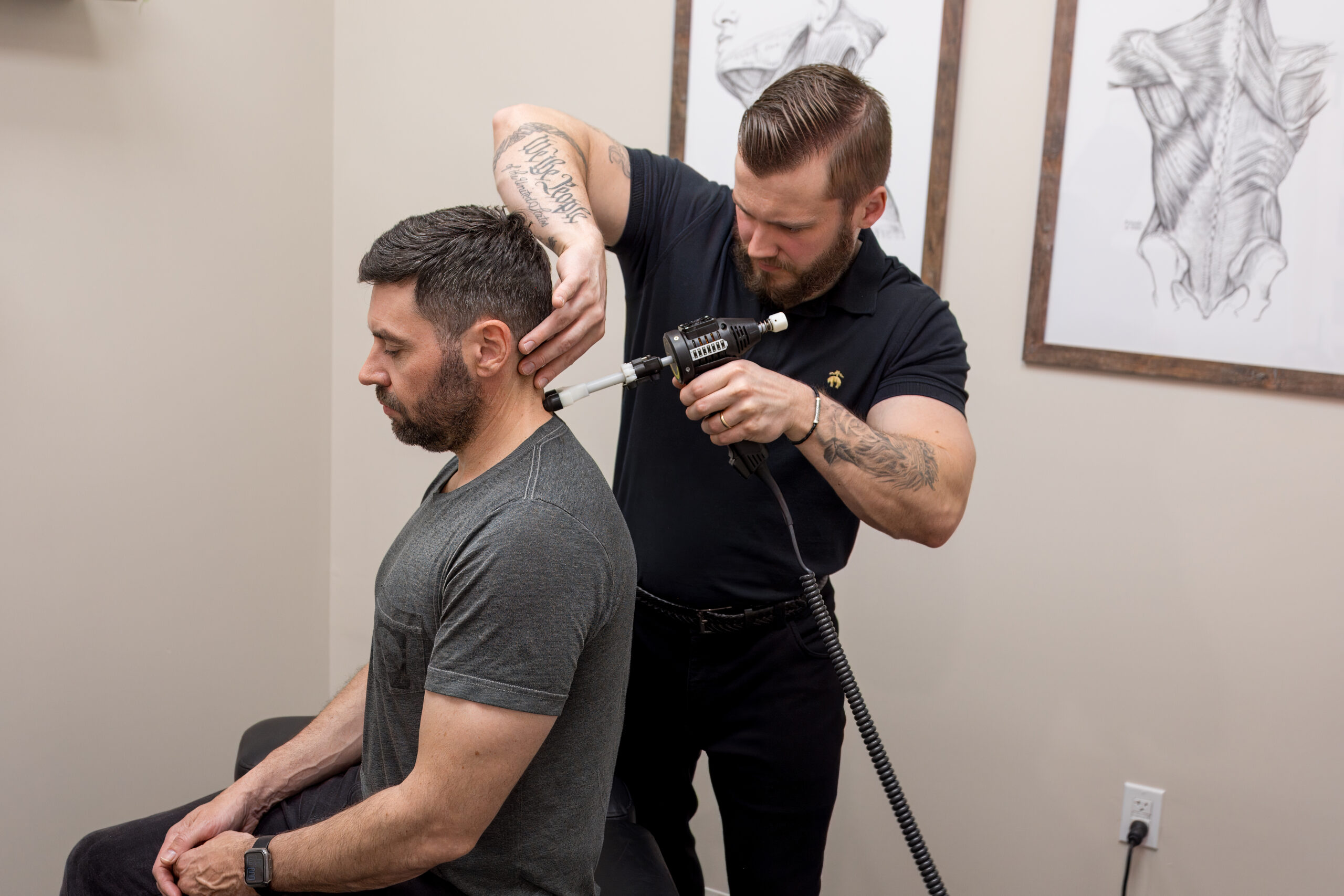How Chiropractic Care Can Help Relieve Migraines: A Natural, Effective Solution
Chiropractic care offers a natural and effective solution for migraine relief. By focusing on spinal adjustments, proper alignment, and holistic treatments, chiropractic care can reduce migraine frequency and intensity. If you’re seeking a non-invasive approach to managing migraines in Livonia, Northville, Plymouth, MI, chiropractic treatment may be the key to finding long-term relief and improving your quality of life
Understanding Migraines: Symptoms and Causes
Migraines are more than just headaches; they can significantly impact your daily life, causing pain, nausea, light sensitivity, and other debilitating symptoms. Many people suffering from migraines are in search of effective, non-invasive treatments that can provide lasting relief. Chiropractic care has shown promising results in helping individuals manage and alleviate migraine pain.
Common Migraine Symptoms
- Intense, throbbing head pain (often on one side)
- Nausea and vomiting
- Sensitivity to light, sound, or smell
- Aura (visual disturbances, such as flashing lights or blind spots)
- Dizziness or vertigo
Knowing the symptoms can help you understand whether chiropractic care for migraine relief could be an appropriate treatment for your condition.
How Chiropractic Care Helps Relieve Migraines:
1. Spinal Misalignments and Nerve Roots:
Spinal misalignments, particularly in the cervical spine (neck area), can trigger migraines. The C1 and C2 vertebrae are crucial in migraine sufferers because they are close to the occipital nerve. When these vertebrae are misaligned, it can lead to nerve compression, causing migraine pain. Chiropractic adjustments realign the spine, relieving pressure on nerves and reducing migraine intensity.
2. Cervicogenic Headaches and Nerve Irritation:
Cervicogenic headaches, which originate from the neck, often cause symptoms similar to migraines. Chiropractic care helps to relieve these headaches by improving spinal alignment, reducing muscle tension, and relieving nerve compression.
3. Enhancing Blood Flow and Nervous System Function:
Proper spinal alignment is essential for the optimal functioning of the nervous system. Misalignments can interfere with nerve signals, contributing to migraines. Chiropractic care restores nerve function and improves blood flow, helping prevent migraines and promoting overall wellness.
4. Reducing Muscle Tension
Poor posture and muscle tension are common migraine triggers. Chiropractic care helps by correcting postural imbalances, releasing muscle tension, and restoring proper spinal alignment to reduce migraine risk.
Nutrition and Lifestyle for Migraine Prevention:
While chiropractic care is highly effective, lifestyle adjustments can complement your treatment plan and help prevent future migraines. Diet, hydration, and exercise all play an important role in migraine management.
Foods to Include for Migraine Prevention
Certain foods can help reduce the frequency of migraines, while others may trigger them. Consider incorporating magnesium-rich foods like leafy greens, bananas, and almonds into your diet, as magnesium deficiency has been linked to migraines. Staying hydrated and avoiding caffeine, processed foods, and artificial additives can also be helpful.
The Importance of Regular Exercise
Exercise is a great way to manage stress and improve circulation, both of which are essential for preventing migraines. Low-impact activities like walking, swimming, or yoga can reduce muscle tension, improve posture, and promote overall wellness.
Scientific Studies Supporting Chiropractic for Migraines
Studies have shown that chiropractic adjustments can significantly reduce both the frequency and intensity of migraines. Research published in journals like The Journal of Manipulative and Physiological Therapeutics and The Journal of Alternative and Complementary Medicine confirms that spinal manipulation is an effective method for alleviating migraine pain and improving the quality of life.
1. The Efficacy of Spinal Manipulation for Migraines: A Randomized Controlled Trial
-
- Source: Journal of Manipulative and Physiological Therapeutics
- Summary: A randomized controlled trial assessed the efficacy of chiropractic spinal manipulative therapy (CSMT) for migraine sufferers. The study found that participants receiving CSMT experienced significant improvements in migraine frequency and intensity compared to the control group.
Link: Pubmed.ncbi.nlm.nih.gov
2. Chiropractic Care for Migraine and Cervicogenic Headaches: A Clinical Trial
-
- Source: Journal of Manipulative and Physiological Therapeutics
- Summary: A 2011 study examined chiropractic care, including spinal manipulation, for managing migraine and cervicogenic headaches. The evidence suggests that chiropractic interventions can lead to improvements in these types of headaches.
Link: Jmptonline.org
3. The Effects of Chiropractic Care on Migraine Frequency: A Pilot Study
-
- Source: Journal of Chiropractic Medicine
- Summary: This 2020 pilot study investigated the effects of chiropractic care on migraine frequency. The results showed that chiropractic interventions significantly reduced the frequency of migraines and helped alleviate symptoms in the participants.
Link: Sciencedirect.com
Why Choose Chiropractic Care for Migraine Relief?
Chiropractic care offers a safe, non-invasive alternative to traditional migraine treatments, such as medications that often come with side effects. At Simply Well Chiropractic, we focus on the underlying causes of your migraines, helping to reduce pain and prevent future episodes.
- Drug-free, natural relief
- Long-term migraine management
- Improved spinal alignment and nervous system function
- Reduced reliance on pain medications
- Personalized treatment plans tailored to your needs
Conclusion:
If you’re tired of relying on medication to manage your migraines, chiropractic care can offer a safe, natural alternative. By improving spinal alignment, enhancing nervous system function, and addressing lifestyle factors like nutrition and exercise, chiropractic care can provide lasting relief and reduce the frequency of migraines.
Ready to take control of your migraine pain? Contact Simply Well Chiropractic today to schedule a consultation and discover how chiropractic care can help you live a pain-free life.





![Copy of [Original size] Beige Green Simple Welcome to Neighborhood Greeting Gift Card (6)](https://getsimplywell.com/wp-content/uploads/2024/04/Copy-of-Original-size-Beige-Green-Simple-Welcome-to-Neighborhood-Greeting-Gift-Card-6.png)